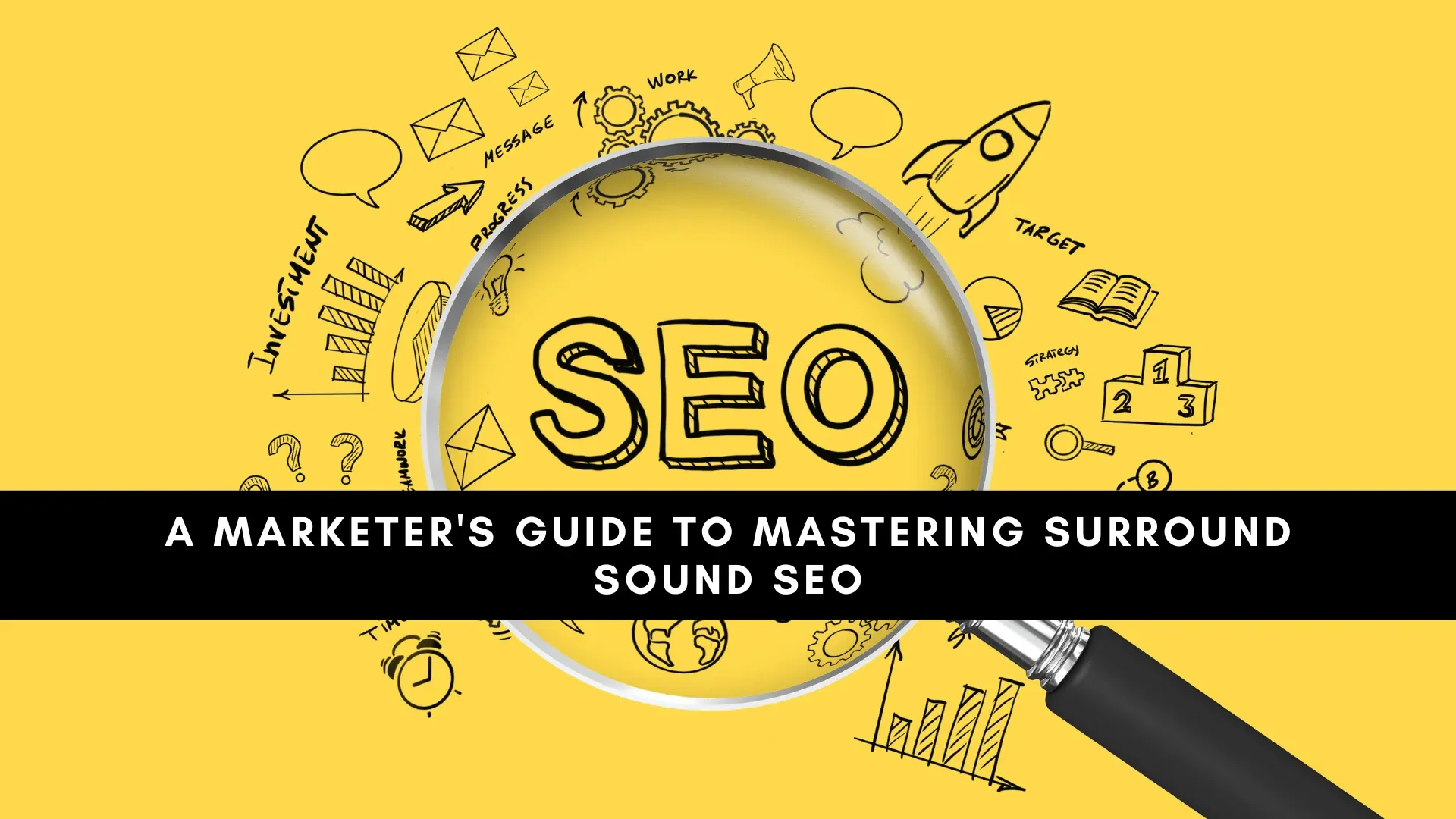Introduction
Welcome to the world of content marketing! In today’s digital age, where information is abundant and attention spans are short, content marketing has emerged as a powerful tool for businesses to connect with their target audience, build brand awareness, and drive customer engagement.
In this comprehensive guide, we will delve into the intricacies of content marketing, exploring its definition, importance, strategy, challenges, and future trends. Whether you are a small business owner or a marketing professional, this article will equip you with the knowledge and insights to take your content marketing efforts to new heights.
The Power of Content Marketing
Content marketing has become an integral part of the marketing landscape due to its ability to captivate and engage audiences. Unlike traditional marketing methods that focus solely on promoting products or services, content marketing takes a different approach. It aims to provide valuable and relevant content to the target audience, with the ultimate goal of building trust, establishing authority, and driving profitable customer action.
By creating and sharing high-quality content, businesses can position themselves as thought leaders in their industry, attract a loyal following, and ultimately increase their bottom line. Content marketing allows businesses to connect with their audience on a deeper level, fostering long-term relationships that go beyond transactional interactions.
Setting the Stage: What This Article Will Cover
Now that we understand the power of content marketing, let’s dive into the details. In this article, we will cover the following topics:
- What is content marketing?
- The importance of content marketing to your business
- Understanding the content marketing strategy
- Essential components of a content marketing strategy
- Top tips for a successful content marketing strategy
- Overcoming common challenges in content marketing strategy
- Case studies: Successful content marketing strategies
- The future of content marketing: Trends and predictions
- Conclusion: Take your business to new heights with content marketing
- Additional resources for content marketing knowledge
Define: What is Content Marketing?
Basic Definition: Content Marketing Explained
Content marketing is a strategic marketing approach that involves creating and distributing valuable, relevant, and consistent content to attract and retain a clearly defined target audience. The content can take various forms, such as blog posts, videos, infographics, podcasts, e-books, and social media posts.
The key distinction of content marketing lies in its focus on providing value to the audience rather than directly promoting products or services. The content aims to educate, entertain, or inspire the audience, establishing a connection and building trust over time.
The Concept of Value: An Integral Part of Content Marketing
Value is at the core of content marketing. The content created should address the needs, interests, and pain points of the target audience. By providing valuable information or solutions to their problems, businesses can position themselves as trusted advisors, gaining credibility and loyalty from their audience.
Value can be delivered in various ways, such as offering expert insights, sharing industry trends, providing how-to guides, or entertaining the audience with compelling stories. The key is to understand what your audience seeks and tailor your content to meet those needs.
Differentiating Content Marketing from Traditional Marketing
Content marketing differs from traditional marketing in its approach and objectives. Traditional marketing typically focuses on promoting products or services through advertising, direct mail, sales calls, or other promotional tactics. Its primary goal is to generate immediate sales or leads.
On the other hand, content marketing takes a more subtle and long-term approach. It aims to build relationships, establish trust, and create brand awareness by providing valuable content. While content marketing can indirectly lead to sales, its main objective is to engage and nurture the audience over time.
Core Elements of Content Marketing
Successful content marketing relies on several core elements that ensure its effectiveness. Let’s explore these elements in detail:
Consistency
Consistency is key in content marketing. It involves regularly creating and publishing content to maintain a steady flow of communication with your audience. Consistency builds trust and keeps your brand top of mind for your audience.
Consistency extends beyond just the frequency of content creation. It also includes maintaining a consistent brand voice, style, and messaging across all your content channels. This helps in establishing a recognizable brand identity and fostering a cohesive brand experience for your audience.
Quality
Quality is paramount in content marketing. Your content should be well-researched, well-written, and offer genuine value to your audience. High-quality content not only attracts and engages your audience but also positions your brand as an authority in your industry.
Investing time and resources in creating quality content will yield long-term benefits. It will help you build credibility, earn the trust of your audience, and establish your brand as a go-to resource for valuable information.
Relevance
Relevance ensures that your content is tailored to the needs and interests of your target audience. It involves understanding your audience’s demographics, preferences, pain points, and aspirations. By creating content that resonates with your audience, you can capture their attention and keep them engaged.
Relevance also extends to the timing and context of your content. Stay up-to-date with industry trends, current events, and seasonal topics to ensure that your content remains timely and impactful.
The Importance of Content Marketing to Your Business
The Rationale of Embracing Content Marketing
Content marketing offers numerous benefits to businesses of all sizes. Let’s explore some of the key reasons why content marketing is important:
Building Trust
Trust is the foundation of any successful business relationship. Content marketing allows you to establish trust with your audience by providing them with valuable and relevant information. By consistently delivering high-quality content, you position yourself as an expert in your field, earning the trust and respect of your audience.
Maximizing SEO Strategy
Search Engine Optimization (SEO) plays a crucial role in driving organic traffic to your website. Content marketing provides an opportunity to optimize your content with relevant keywords, meta tags, and other SEO techniques. By creating valuable and optimized content, you increase your chances of ranking higher in search engine results, attracting more organic traffic to your website.
Nurturing Long-term Customer Relationships
Content marketing allows you to nurture long-term relationships with your customers. By consistently providing valuable content, you keep your brand top of mind and maintain an ongoing dialogue with your audience. This helps in fostering customer loyalty, repeat business, and word-of-mouth referrals.
Content Marketing: A Cost-effective Method for Small Businesses
Content marketing is particularly beneficial for small businesses with limited marketing budgets. Unlike traditional advertising methods that can be costly, content marketing offers a cost-effective way to reach your target audience and build brand awareness.
With the right content strategy, small businesses can compete with larger competitors and establish themselves as industry leaders. By leveraging their expertise and unique insights, small businesses can create content that resonates with their audience, setting themselves apart from the competition.
Understanding the Content Marketing Strategy
Developing A Winning Content Marketing Strategy: Key Steps
A well-defined content marketing strategy is crucial for achieving your business goals. Here are the key steps involved in developing a winning content marketing strategy:
Defining Your Goals
The first step in creating a content marketing strategy is to define your goals. What do you want to achieve through your content marketing efforts? Do you want to increase brand awareness, generate leads, drive website traffic, or establish thought leadership? Clearly defining your goals will help you shape your content strategy and measure your success.
Knowing Your Audience
Understanding your target audience is essential for creating content that resonates with them. Develop buyer personas to identify the demographics, interests, pain points, and aspirations of your target audience. This will help you tailor your content to their needs and preferences.
Analyzing Competition
Competitor analysis is a crucial step in content marketing strategy. Identify your main competitors and analyze their content marketing efforts. What type of content are they creating? How are they engaging with their audience? This analysis will help you identify gaps and opportunities in the market, allowing you to differentiate your content and stand out from the competition.
Content Marketing Strategy: Essential Components
A successful content marketing strategy comprises several essential components. Let’s explore each of these components:
Content Creation
Content creation is the heart of content marketing. It involves ideating, planning, and producing high-quality content that aligns with your goals and resonates with your audience. The content can take various forms, such as blog posts, videos, infographics, podcasts, e-books, and social media posts.
When creating content, focus on providing value to your audience. Address their pain points, answer their questions, and provide insights that help them solve their problems. Use a mix of formats and mediums to keep your content engaging and diverse.
Content Distribution
Content distribution is the process of getting your content in front of your target audience. It involves utilizing various channels and platforms to reach your audience effectively. Some common distribution channels include your website, blog, social media platforms, email newsletters, guest posting on industry websites, and collaborations with influencers or other brands.
When distributing your content, consider the preferences and habits of your target audience. Where do they spend their time online? Which social media platforms do they use? Tailor your distribution strategy to maximize the reach and impact of your content.
Content Analysis and Improvement
Content analysis is a critical component of a content marketing strategy. It involves tracking and analyzing the performance of your content to identify what works and what doesn’t. By measuring key metrics such as website traffic, engagement rates, conversions, and social media shares, you can gain valuable insights into the effectiveness of your content.
Based on the analysis, make data-driven decisions to improve your content strategy. Identify the types of content that resonate most with your audience, the channels that drive the most traffic, and the topics that generate the highest engagement. Continuously refine and optimize your content strategy to achieve better results over time.
Top Tips for a Successful Content Marketing Strategy
Now that we understand the key components of a content marketing strategy, let’s explore some top tips to make your strategy successful:
Quality over Quantity
When it comes to content marketing, quality trumps quantity. Focus on creating high-quality content that provides real value to your audience. A single piece of well-researched and well-crafted content can have a more significant impact than multiple mediocre pieces.
Invest time in researching your topics, gathering data and insights, and crafting compelling narratives. Polish your content to ensure it is error-free, engaging, and easy to read. By prioritizing quality, you will attract and retain a loyal audience that values your expertise.
Leveraging SEO
Search Engine Optimization (SEO) plays a vital role in content marketing. Optimize your content for relevant keywords, meta tags, and other SEO techniques to increase its visibility in search engine results. This will help drive organic traffic to your website and expand your audience reach.
Research keywords that are relevant to your target audience and incorporate them naturally into your content. Optimize your headings, subheadings, and meta descriptions to improve your chances of ranking higher in search results. Regularly monitor your SEO performance and make adjustments as needed.
Engage with Your Audience: Embracing User-generated Content
Engaging with your audience is crucial for building a loyal following. Encourage user-generated content by inviting your audience to share their experiences, opinions, and stories related to your brand. This can be done through contests, social media campaigns, or simply by encouraging comments and feedback on your content.
User-generated content not only strengthens the bond between your brand and your audience but also provides valuable social proof. When your audience sees others engaging with your brand, it builds trust and credibility. Share user-generated content on your website and social media platforms to showcase the authenticity and community around your brand.
Consistent Brand Messaging
Consistency in brand messaging is essential for creating a strong brand identity. Ensure that your content reflects your brand’s values, voice, and personality. Consistency in messaging helps in building brand recognition and establishing a cohesive brand experience for your audience.
Create brand guidelines that outline your brand’s tone of voice, visual style, and key messaging points. Train your content creators and ensure that they adhere to these guidelines. Consistency in messaging will help you build a strong brand presence and differentiate yourself from competitors.
Overcoming Common Challenges in Content Marketing Strategy
Content marketing is not without its challenges. Let’s explore some common challenges faced by businesses and how to overcome them:
Challenge #1: Creating High-quality Content
Creating high-quality content consistently can be a challenge, especially for businesses with limited resources. To overcome this challenge, consider the following strategies:
- Plan your content in advance: Develop a content calendar and outline topics and formats in advance. This will help you stay organized and ensure a steady flow of content.
- Outsource content creation: If you lack the time or expertise to create content in-house, consider outsourcing to freelance writers, agencies, or industry experts.
- Repurpose existing content: Repurpose your existing content into different formats to maximize its reach and impact. For example, turn a blog post into a video or an infographic.
Challenge #2: Distributing Content Efficiently
Getting your content in front of your target audience can be a challenge, especially with the abundance of content available online. To overcome this challenge, consider the following strategies:
- Identify the right channels: Research and identify the channels and platforms where your target audience spends their time. Focus your distribution efforts on these channels to maximize your reach.
- Collaborate with influencers: Partner with influencers or industry experts who have a large following in your niche. Their endorsement and promotion can significantly expand your content’s reach.
- Optimize for social media: Tailor your content for social media platforms by using engaging visuals, compelling headlines, and concise messaging. Leverage social media advertising to boost the visibility of your content.
Challenge #3: Tracking and Evaluating Performance
Measuring the effectiveness of your content marketing efforts can be challenging without proper tracking and evaluation. To overcome this challenge, consider the following strategies:
- Set clear metrics: Define key performance indicators (KPIs) that align with your content marketing goals. These could include website traffic, engagement rates, conversions, or social media shares.
- Use analytics tools: Utilize analytics tools like Google Analytics, social media insights, or email marketing platforms to track and measure the performance of your content.
- Regularly analyze and refine: Continuously analyze the performance of your content and make data-driven decisions to improve your strategy. Experiment with different approaches and tactics to find what works best for your audience.
Case Studies: Successful Content Marketing Strategies
Company 1: Successful Strategy and Results
Company 1, a small e-commerce business specializing in sustainable fashion, implemented a content marketing strategy that focused on educating their audience about the benefits of sustainable fashion and providing styling tips. They created a blog, produced videos showcasing their products, and collaborated with influencers to spread their message.
As a result of their content marketing efforts, Company 1 saw a significant increase in website traffic, engagement, and conversions. Their blog became a go-to resource for sustainable fashion enthusiasts, and their videos garnered thousands of views on social media. The content marketing strategy helped them establish their brand as a leader in the sustainable fashion industry and attract a loyal customer base.
Company 2: Successful Strategy and Results
Company 2, a B2B software company, implemented a content marketing strategy that focused on thought leadership and industry insights. They created in-depth whitepapers, hosted webinars with industry experts, and published case studies showcasing their successful client implementations.
By providing valuable and informative content, Company 2 positioned themselves as experts in their field and gained the trust of their target audience. Their content marketing efforts resulted in an increase in leads, conversions, and customer retention. The thought leadership content helped them secure partnerships with other industry leaders and expand their customer base.
The Future of Content Marketing: Trends and Predictions
Trend 1: Increased Demand for Video Content
Video content has been on the rise, and this trend is expected to continue in the future. With the proliferation of smartphones and faster internet speeds, video consumption has become more prevalent. Businesses need to leverage video content to engage their audience effectively.
Short-form videos, live streaming, and interactive videos are expected to gain popularity. Businesses should invest in creating high-quality and engaging video content to stay ahead of the competition and capture the attention of their target audience.
Trend 2: The Rise of Voice Search
Voice search is rapidly becoming a preferred method of search for many users. With the increasing popularity of voice-activated virtual assistants like Siri, Alexa, and Google Assistant, businesses need to optimize their content for voice search.
Long-tail keywords, conversational language, and featured snippets are crucial for voice search optimization. Businesses should focus on creating content that answers specific questions and provides concise and relevant information.
Predictions: What’s Next?
The future of content marketing is exciting and full of possibilities. Here are some predictions for what’s next:
- Personalized content experiences: Businesses will increasingly tailor their content to individual preferences and interests, creating personalized experiences for their audience.
- Augmented reality (AR) and virtual reality (VR) content: AR and VR technologies will revolutionize content consumption, allowing businesses to create immersive and interactive experiences for their audience.
- Artificial intelligence (AI) in content creation: AI-powered tools will assist businesses in creating and optimizing content, enabling faster and more efficient content creation processes.
Conclusion: Take Your Business to New Heights with Content Marketing
Summarizing the Power of Content Marketing
Content marketing has emerged as a powerful tool for businesses to connect with their audience, build trust, and drive profitable customer action. By providing valuable and relevant content, businesses can position themselves as thought leaders, maximize their SEO strategy, and nurture long-term customer relationships.
Last Call To Action: Starting your Content Marketing journey NOW
Now is the time to embrace content marketing and take your business to new heights. Start by defining your goals, understanding your audience, and developing a comprehensive content marketing strategy. Remember to prioritize quality, leverage SEO, engage with your audience, and consistently deliver your brand message.
Additional Resources for Content Marketing Knowledge
Blogs and Websites
– Content Marketing Institute: www.contentmarketinginstitute.com
– HubSpot Blog: blog.hubspot.com/marketing
– Neil Patel: neilpatel.com/blog
Books and E-books
– “Content Inc.” by Joe Pulizzi
– “Epic Content Marketing” by Joe Pulizzi
– “Everybody Writes” by Ann Handley
Free Online Courses on Content Marketing
– HubSpot Academy: academy.hubspot.com
– Coursera: www.coursera.org
– Udemy: www.udemy.com
These resources will provide you with further insights, strategies, and inspiration to enhance your content marketing knowledge and skills.




